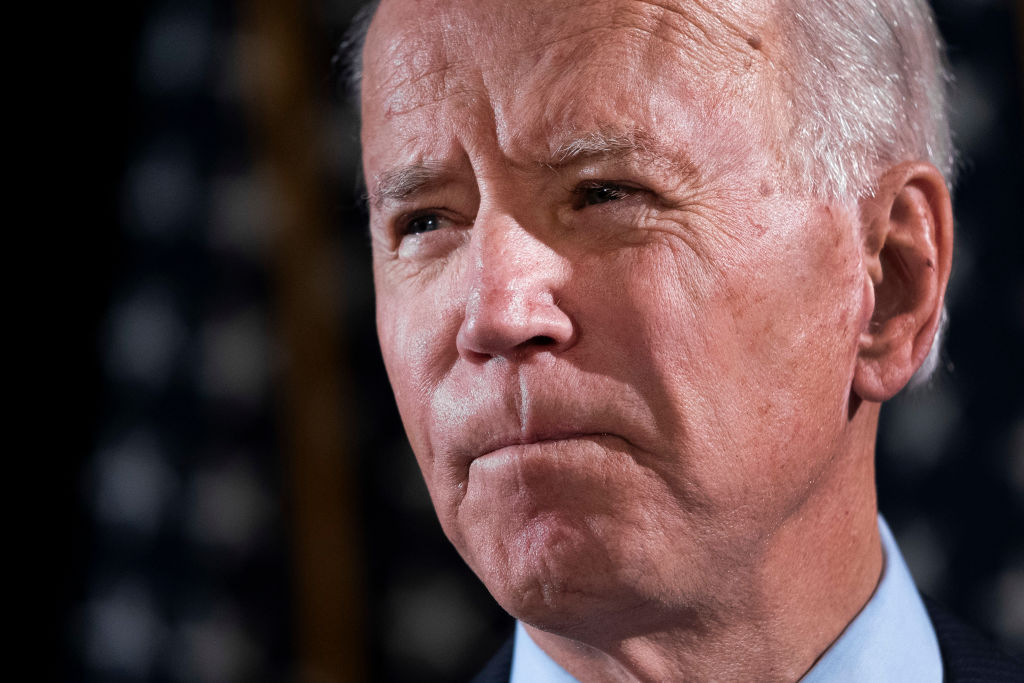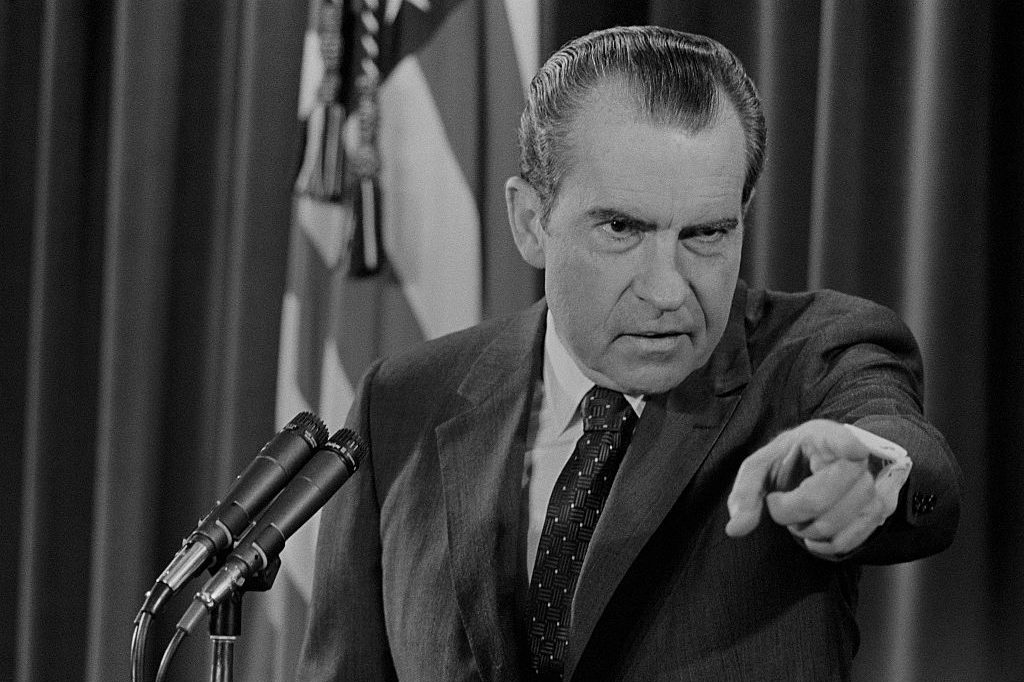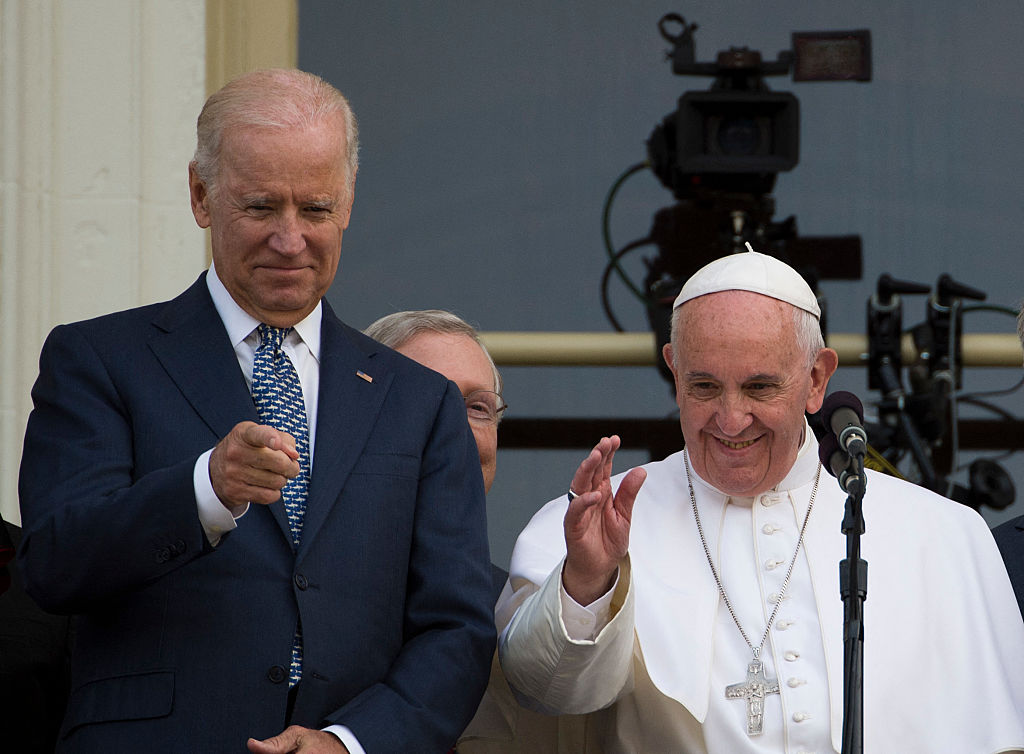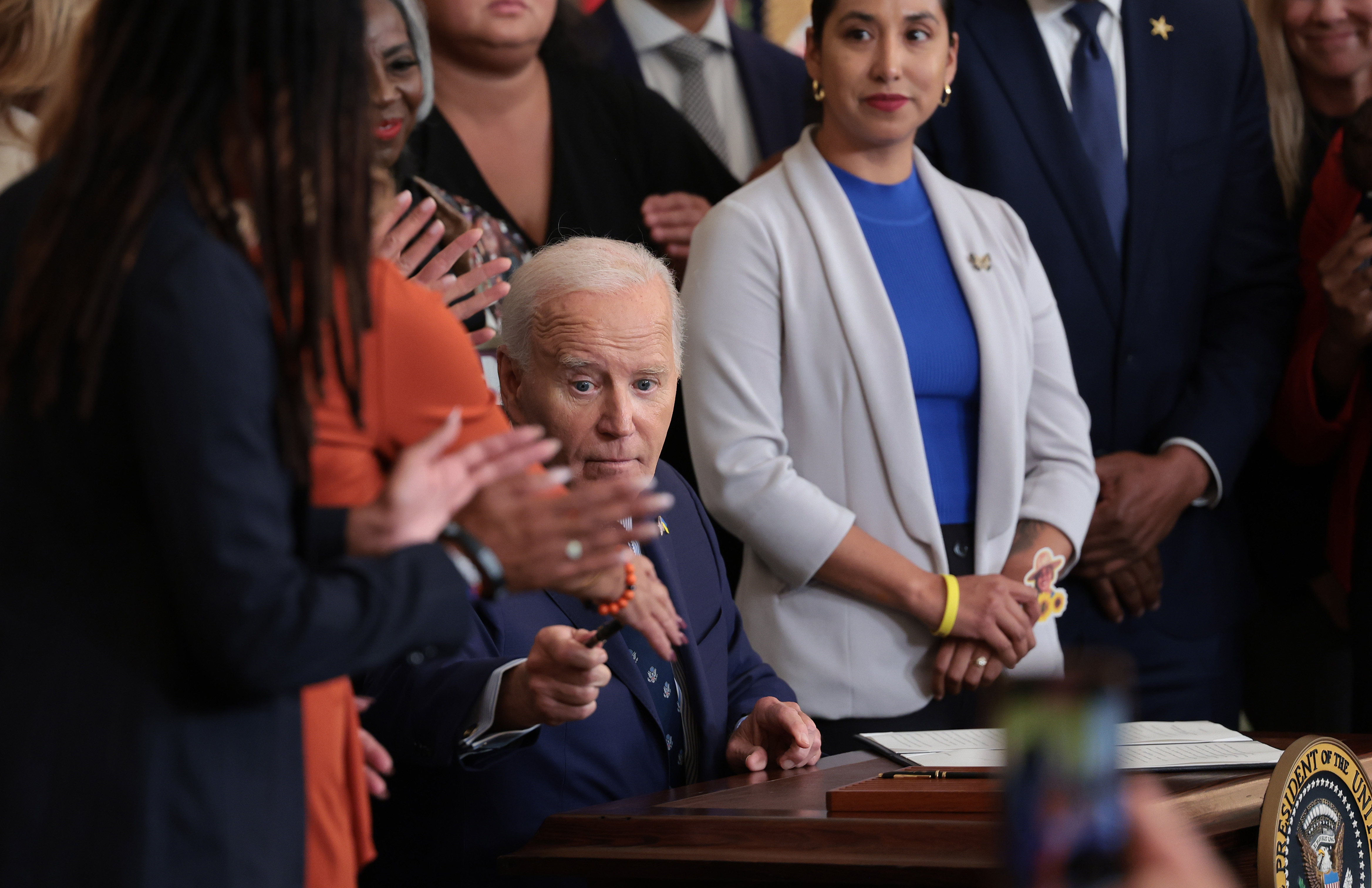‘The gym bag, I don’t know where it went. I handed it to him. It was gone and then his hands were on me and underneath my clothes. And then he went down my skirt, but then up inside it and he penetrated me with his fingers.’
That’s how former Senate aide Tara Reade described a 1993 encounter with her former boss Joe Biden on a podcast last month. A Biden spokesperson says the account is ‘false’, but Reade’s claim is supported by a friend and her younger brother, who both say she told them about the alleged assault shortly after it happened. But most establishment media outlets, such as the Washington Post, didn’t give her allegation more than a passing mention. Biden managed to give seven interviews to the press without being asked about Reade’s claims once. CNN still hasn’t covered it on air or online. New York Times subscribers didn’t read about the accusation until nearly three weeks after it was made public, and the story the Times finally put out is dripping with bias.
The Times said in their article that they fully investigated Reade’s account and found ‘no pattern’ of sexual misconduct by Biden…despite the fact that they also write that seven women had previously accused Biden of inappropriate touching — some of which is corroborated on video. The cognitive dissonance of such a claim was summed up perfectly in a now-deleted tweet posted by the Times: ‘We found no pattern of misconduct by Biden, beyond hugs, kisses, and touching that women previously said made them uncomfortable.’
The article goes on to deflect from Reade’s allegation against Biden by bringing up the sexual harassment and assault accusations against Trump, including a rape allegation by E. Jean Carroll, who has subsequently said that rape can be ‘sexy’, that she didn’t think her account would get much attention, and that reporting it to police would be ‘disrespectful’ to the women being assaulted at the US-Mexico border. The Times also mentions Trump’s hush money payment to settle an affair with porn star Stormy Daniels, without indicating what that event has to do with Biden’s alleged behavior.
The Times’s handling of the Reade accusation stands in stark contrast to how the newspaper covered allegations of sexual misconduct against then-Supreme Court nominee Brett Kavanaugh in 2018. Julie Swetnick, the third woman to accuse Kavanaugh, issued the outrageous claim that he witnessed or was involved in gang rapes at high school parties. She identified no individuals who could verify her account, did not explain how she knew Kavanaugh, and claimed she continued to attend parties where she knew said gang rapes were taking place. The Times could not ‘independently corroborate’ Swetnick’s story, but still printed it the same day she volunteered it. Reade, meanwhile, professes to remember several details about her encounter, including the date it took place. She has filed a police report and identified individuals she told about the event. She claims she filed a complaint with the Senate in 1993. Yet the Times waited 19 days to print her allegation. Reade also appears to recall more details about her incident with Biden than Kavanaugh’s first accuser Christine Blasey Ford ever did. Guess which of the two women the Times portrayed sympathetically?
Ben Smith, a media critic with the Times, asked his editor Dean Baquet about the paper’s varying treatment of sexual assault accusers. Baquet’s answers were less than satisfying: he said that the Times covered Swetnick’s allegation so quickly because ‘Kavanaugh was already in a public forum in a large way’. Need I remind you, Joe Biden is a former vice president who was on the cusp of locking up the Democratic presidential nomination when he was accused.
‘If you ask the average person in America, they didn’t know about the Tara Reade case,’ Baquet also said, adding later, ‘Kavanaugh was a running, hot story. I don’t think it’s that the ethical standards were different. I think the news judgments had to be made from a different perspective in a running hot story.’ Baquet’s comments hint at a catch-22 situation. Reade’s accusation couldn’t become ‘hot’ because it wasn’t being covered by most of the media. This ensured most people wouldn’t hear about it, and therefore the Times could continue to use that excuse to delay reporting on the case.
The most damning thing Baquet revealed during his interview with Smith is that the paper later cut a portion of its article at the behest of the Biden campaign, who found the phrasing ‘awkward’. In the revised version, the sentence reads ‘We found no pattern of misconduct by Biden’, and omits ‘beyond hugs, kisses, and touching that women previously said made them uncomfortable’.
‘Even though a lot of us, including me, had looked at it before the story went into the paper, I think that the campaign thought that the phrasing was awkward and made it look like there were other instances in which he had been accused of sexual misconduct. And that’s not what the sentence was intended to say,’ Baquet said.
Of course, Biden has been accused of sexual misconduct before. And it’s hard to imagine the Times ever editing a story if the Trump campaign had an issue with its characterization of the president. Baquet can assert over and over again that they were merely trying to ‘let readers decide’ how to weigh Reade’s allegation against Biden, but the details of their reporting and the significant delay in releasing an article hints they don’t want readers to take her seriously. This in turn gives carte blanche for supposed #MeToo advocates to stand by their favored candidate, from celebrities like Alyssa Milano, to politicians like Bernie Sanders and Barack Obama, both of whom have endorsed Biden since the Times story.
***
Get three months’ free access to The Spectator USA website —
then just $3.99/month. Subscribe here
***
The media’s deference to Democrats over their accusers on issues of sexual assault and misconduct has played out numerous times over the past few years. Katie Hill, who resigned from Congress after reports she abused her power by having sexual relationships with subordinates, is now considered the true ‘victim’ because of the way her misdeeds were exposed. She has since gone on a media rehabilitation tour where she has been free to make excuses for her behavior and manipulate sympathetic interviewers. Pundits on MSNBC’s Morning Joe openly mourned for Al Franken when he was forced to leave the Senate over several allegations of groping women.
Political candidates have always spoken about misconduct in ways that benefit their own ambitions and put the best interests of victims on the back burner. Hillary Clinton, for example, sidestepped the obvious abuse of power involved in Bill Clinton’s Oval Office affair with intern Monica Lewinsky by noting that she was an ‘adult’ at the time. Donald Trump later used rape allegations against former President Clinton as fodder for a presidential debate, trotting out Clinton’s accusers so his wife would have to see them in the front row from the debate stage. But the media’s new gatekeeping of sexual misconduct allegations is potentially far more destructive.
Accusers have always had to face a near-impossible choice when deciding to come forward: stay quiet and avoid a public tarring, or go public and have your entire life ripped apart for the minuscule chance that your abuser faces justice. It’s perhaps an even bigger slap in the face to share an accusation and discover that the so-called arbiters of truth in the media are covering for their politician of choice, or that they don’t seem to care at all.

























